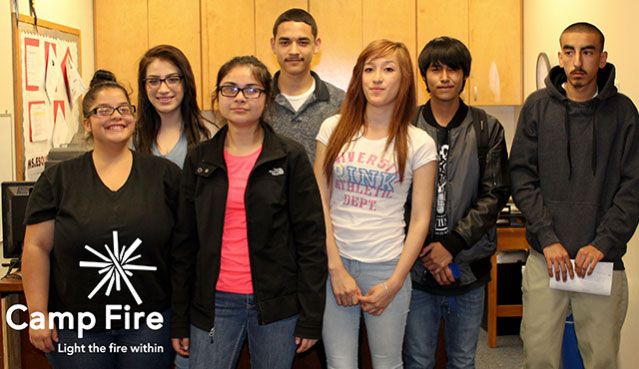
After telling people I am the director of a truancy prevention program and school completion program, I usually get one of three responses that sound something like the following:
- “Wow, you must have a lot of patience!”
- “Bless your heart.”
- “How do you have the energy for that?”
If the conversation continues the phrase “kids these days” is usually brought up (i.e. “I just don’t see how you can work with kids these days!”). As an advocate for the youth I work with, I have always struggled with the proper response to this. It’s no secret that it’s almost always used negatively; kids these days are so: lazy, entitled, disrespectful, mean – you insert the adjective. Working with youth in a truancy prevention program has shown me the exact opposite. Kids these days are accepting, resilient, curious, independent, respectful and stronger than ever. I know what you’re thinking – if I work with a truancy prevention program, doesn’t that mean I’m working with school-skipping, disobedient criminals?
No, I’m not. I work with youth who are each dealing with individual struggles – they aren’t defined by them.
I wish there were a manual to working with struggling teens. As youth change, so do best practices and teaching styles. Just recently, Texas changed a law to reflect new insight dealing with truancy and school completion. While I don’t claim to know everything about working with youth who struggle, I have learned to accept one very important fact – no child wants to be bad. I have never worked with a struggling youth who enjoys or wants to be labeled as “the bad kid.”
What I have learned is there are a number of issues that could be contributing to difficult behavior:
- They might not be sleeping at night. One of the most common excuses given for missing school isn’t anything ground-breaking or dramatic – it’s simply “I was sleeping”. While it is possible a rough night of sleep could be a medical issue, more than likely the child is just staying up too late. This is something that could be remedied by revisiting the home routine schedule, or removing technology from the bedroom during sleeping hours.
- They might not feel like they fit in. While this might appear to be a surface level issue, it’s actually a pretty deep one. When a youth says “my teacher doesn’t like me”, it usually means more than that. A student who feels like they don’t fit in often lacks understanding of their role and purpose in school or group activities. When a student is held back, this issue becomes bigger and bigger. As students progress from middle school to high school, they begin to see school as a social activity. For someone who feels like an outcast, this can be a lot of pressure.
- They might be bored. If school were fun for everyone, truancy wouldn’t be an issue. The kids who succeed and excel in school are ones that are able to make school appeal to their interests. Helping a child understand how school can be fun for their individual preferences can make all the difference.
- They might have a learning disability. Major or minor, diagnosed or undiagnosed, learning disabilities can play a huge role in truancy. When lessons become hard, some students would rather not go to school than be labeled the “dumb kid”.
- They might have an unstable home environment. Home life plays such an important role in a child’s education. I’ve experienced issues where a child is taking on adult responsibilities, the home is filled with violence, or the parent/guardian is legitimately non-existent. If something doesn’t seem right, it probably isn’t. While sometimes all it takes is talking about an issue and working out a plan, other times the solution is much more difficult to reach. Bottom line, be the advocate for your youth.
From my experience, I’ve learned the more youth are involved in their community, the better chance they have at turning things around. Sometimes all it takes is a volunteer project for youth to feel like they have a purpose. Once they feel the worth and value they have to offer, they are often able to make improvements that not only affect their school attendance, but also their home life and well-being.
This is where Camp Fire Step Up plays a role. Not only does our program provide hands-on opportunities for youth to get involved in something bigger than themselves, our program also teaches them tools to be self-reliant and set goals with the steps to accomplish them – and our outcomes show it is working!
The latest Youth Outcomes Data for Camp Fire First Texas showed statistically significant positive pre to post change in the Thriving Indicator domains. Positive change was greatest in Life Skills (problem-solving and preparedness) and Conflict Resolution, a key component to Emotional Competence. And when compared to 2014 participant reports (20%), 2015 participants reported a notably greater increase in the area of Life Skills (53.3%).
Numbers aside, when it comes down to it kids just want someone to be there for them. Learn to not label youth by their actions, be the support system they need, and give everyone a second chance.
Olga Nowlan is the Step Up Director of Teen Services for Camp Fire First Texas. Her specialties include drug, alcohol and truancy prevention in at-risk teens. Olga holds a Bachelor of Arts in interdisciplinary Studies from the University of Texas at Arlington as well as certifications in Texas Educator ESL/Generalist EC-6 Grade, Community Health Worker with the State of Texas, and a Child Passenger Car Seat Technician.






